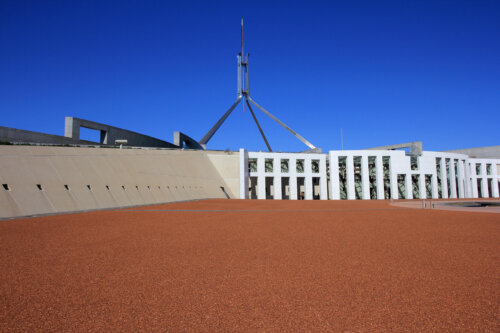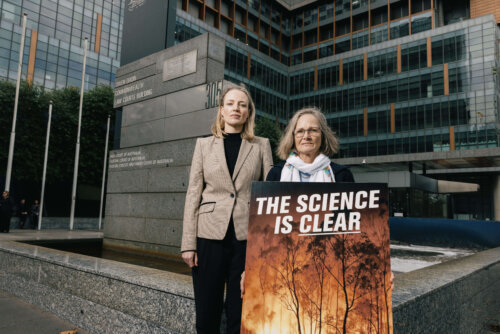Next week, on the same day as the Federal Budget, the Albanese government is expected to introduce changes to the Australia’s nature laws, the Environment Protection and Biodiversity Conservation (EPBC) Act.
The government says the controversial changes are being pushed through to protect Tasmania’s salmon industry from a legal challenge over its impact on an endangered fish species, the Maugean skate.
But based on what has been reported in the media, many civil society groups, including EJA, fear the changes could have far-reaching consequences.
They are concerned the changes could undermine environmental assessments to protect nature and our climate, and curb public rights.
So, what does it mean legally?

“Not only has the Albanese Government backed away from its promise to fix the broken environment laws in this country – it now appears to be quietly removing the ability of community members to scrutinise harmful projects.”
– Elizabeth McKinnon, Environmental Justice Australia Co-CEO
The EPBC Act
The EPBC Act is Australia’s key environment law. It plays a central role in protecting nationally significant places, ecosystems, plants, and wildlife by ensuring that major projects – like coal mines, gas fields, deforestation, and large-scale developments like industrial salmon farms – are properly assessed before approval.
These places, species and ecological communities are called ‘Matters of National Environmental Significance’ under the Act.
The Environment Minister has a legal responsibility to protect Matters of National Environmental Significance (MNES), which include threatened species, World Heritage sites, national parks, and important marine environments.
And what's a controlling provision?
By law, major projects go through a two-step assessment.
- First, the Environment Minister identifies which nationally protected animals, plants, habitats and places a project could impact.
If a project is likely to have a significant impact on a protected threatened species, an ecosystem or place, it is a controlled action and 'controlling provisions' apply, to ensure these likely harms are properly considered before a project is assessed. - Then, in step two, the minister assesses the severity of those risks and whether the project should go ahead.
Before the Minister does step two, section 78A of the EPBC Act allows a person to request the Commonwealth Environment Minister to reconsider a decision about whether an action is a controlled action, and the controlling provisions for the action.
This process is crucial.
If there’s ‘substantial new information’ about environmental risks to protected matters – like fresh scientific data on climate change, new threats to vulnerable species or new evidence that shows the potential harm is different than previously understood – the minister must reconsider what’s at stake before approving a project.
Major projects which could cause irreversible damage should never be assessed based on outdated or incomplete information.
These reconsideration requests are sometimes made by community and environment groups concerned that substantial new information has emerged since the Minister did the first step and the Minister should have regard to up-to-date information on the impacts on nationally protected animals, plants, habitats.
What could change?
These proposed amendments threaten to strip these safeguards away. They could mean that the Minister cannot be asked to reconsider past decisions about controlling provisions when there’s new evidence of a significant impact.
Depending on how it is drafted, it could affect all projects assessed under the EPBC Act.
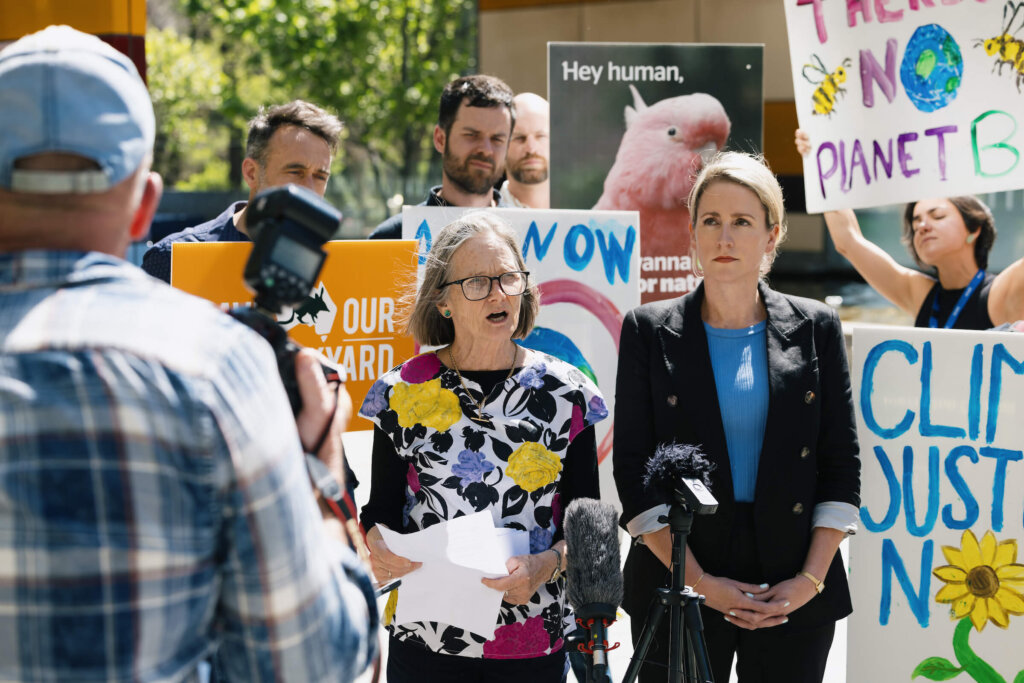
“These changes could gut the ability of community and environment groups to challenge destructive projects – from new coal and gas projects to deforestation or salmon farms.”
What about the salmon farm?
A reconsideration request is currently pending over the impact of Tasmania’s salmon farming industry on the endangered Maugean skate – a prehistoric fish found nowhere else in the world.
A number of environment groups say there is substantial new information that salmon farming is likely to have a devastating impact on skates and their habitat, but the nationally protected threatened species was not listed as a “controlling provision” in the Minister’s earlier decision, which the environment group is asking the Minister to reassess.
Instead of allowing the court process to run its course, Prime Minister Albanese’s office told media the government would legislate “to amend the flawed Environment Protection and Biodiversity Conservation Act to secure jobs and local industries.”
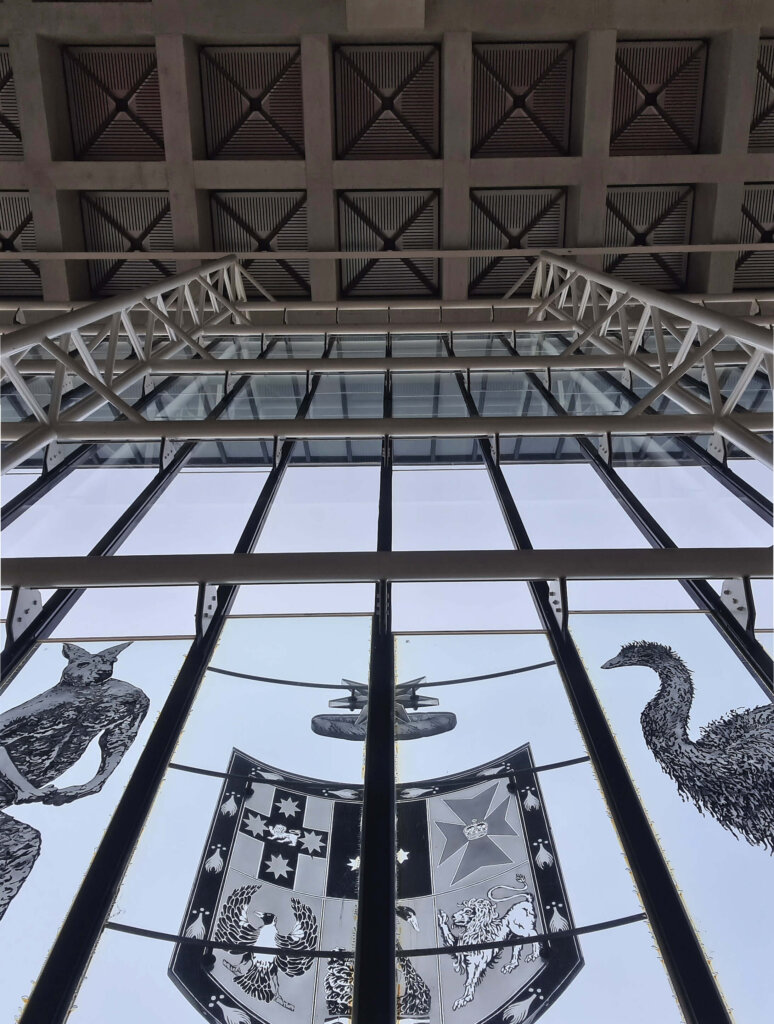
“Proposing new Commonwealth laws to protect a particular industry in a particular harbour in Australia is an extraordinary example of the power of corporate interests in Australia, at the expense of community rights.”
What else could this impact?
On the chopping block is potentially the very section of the EPBC Act our client, the Environment Council of Central Queensland, used in their landmark Living Wonders legal action involving 18 reconsideration requests, asking the Environment Minister to consider significant new evidence of the climate harm to our environment of many of the coal and gas projects then on her desk.
It’s the same legal avenue Greenpeace is currently using to compel the Minister to consider significant new evidence of the risk of harm to Scott Reef from Woodside’s North West Shelf gas facility extension.
Ditto the Australia Institute, currently using this part of our environment laws to trigger reconsideration of new scientific evidence on the risk of extinction to the Maugean skate from salmon farming at Macquarie Harbour.
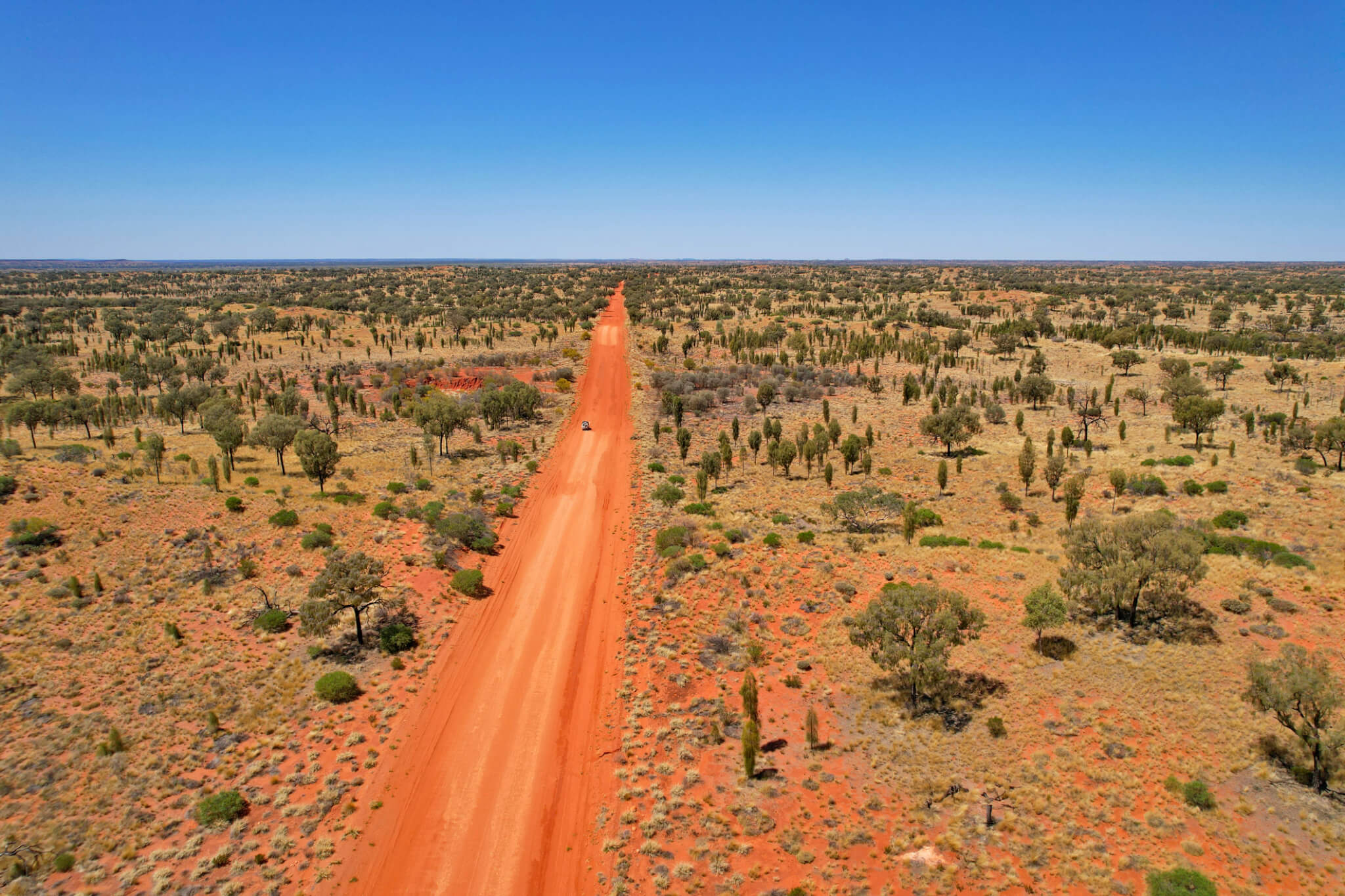
Send the Prime Minister a quick email
As community lawyers, we’re concerned this quiet amendment could be a backdoor way to achieve alarming wide-scale rollbacks of environmental protections in federal law.
Of course, it’s most inconvenient for industry to have their plans properly assessed when they involve significant risks of causing extinction, ecosystem collapse and climate harm.
Inconvenient. But essential.
This is democratic due process – and exactly why we have environment laws.
If you can – send the PM a quick email urging him to protect our laws and strengthen public participation – not gut and silence.
Continue reading...
Our financials
We have a long-standing commitment to sound fiscal management, accountability and transparency.
We encourage you to investigate before you donate.
Join us
The law is a powerful circuit breaker to stop the destruction and make governments and corporations accountable.
Join us and let's build a radically better world.

Make a difference
The challenges we face are vast. The time to push for large-scale system change is now.
